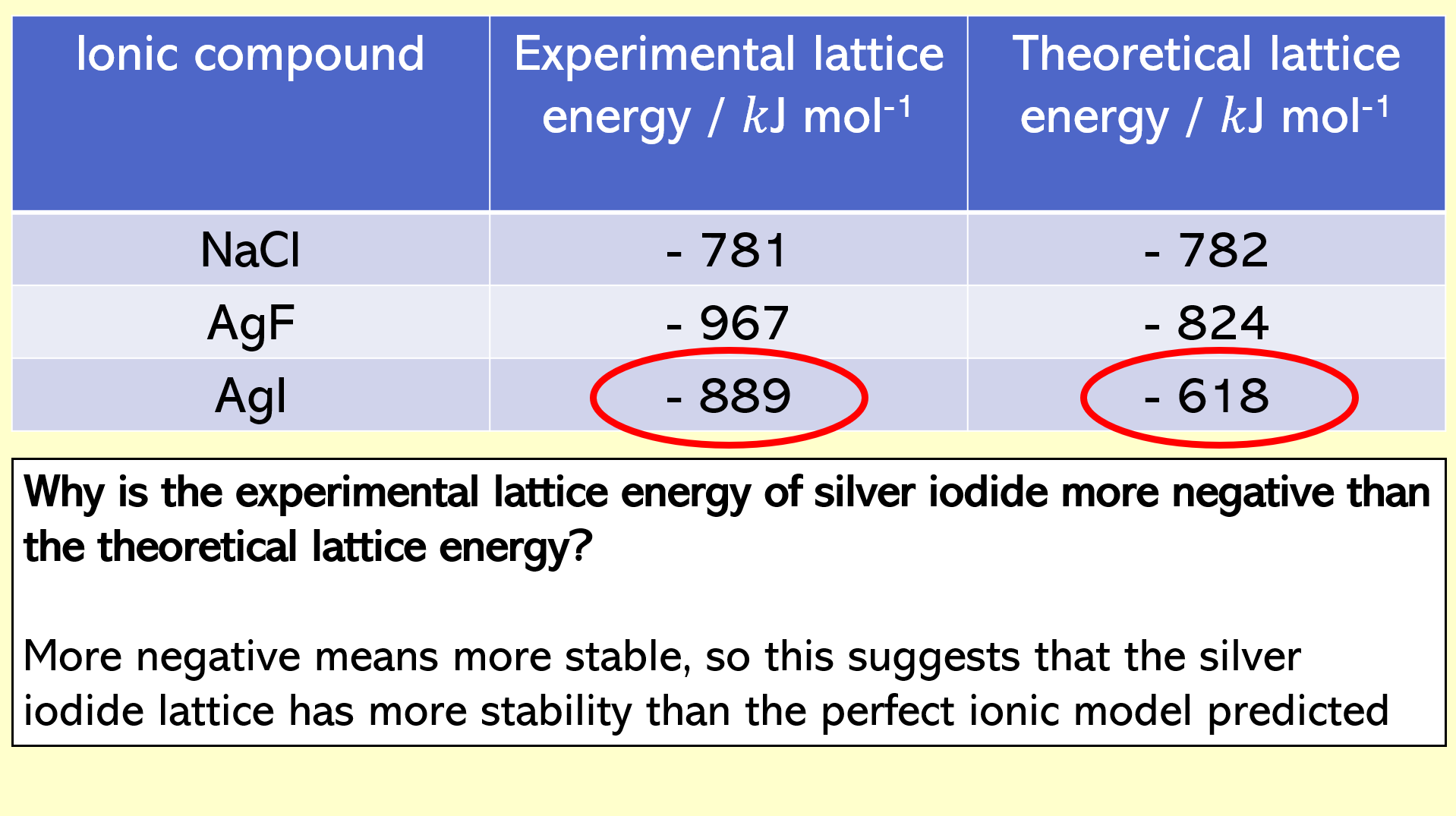


What is the difference between experimental lattice energy and theoretical lattice energy? What is polarisation of the anion and how does this add covalency to the bond? All this and more covered in this comprehensive lesson with questions and answers! This is a Year 13 A level lesson for Edexcel International Unit 4 – WCH14, but it can also be used for all UK exam boards. All the slides in this lesson are fully animated and include answers to every mini plenary question and exam question. The breakdown of the slides (which are best opened on Microsoft PowerPoint) is as follows:
Slide 1 - Title and 5-minute starter. The starter is a grid of four questions entitled ‘last week, last lesson, today’s learning and future learning’. Use this generic slide for all of your lessons by simply changing the questions and the answers each time.
Slide 2 - Lesson objectives (see thumbnail image)
Slide 3 – Introduction to the perfect ionic model
Slide 4 – Introduction to Max Born and Alfred Landé, and how they used the principles of electrostatics to calculate theoretical lattice energies
Slide 5 – Students will be presented with some data on theoretical and experimental lattice energies and will discuss the following question: Why is the experimental lattice energy of silver iodide more negative than the theoretical lattice energy?
Slides 6 – 7: Polarisation (which adds covalency to the bond) explained as the answer to this observation. Factors which affect polarisation of the anion are addressed here too
Slides 8 - 14: Exam questions with mark scheme answers (included with the resource)
Watch the video preview of the lesson, so that you have a better idea of the experience you will have with this resource!
If you have a positive experience with the resource please leave a positive review! This really helps promote our store! Thanks!
Something went wrong, please try again later.
This resource hasn't been reviewed yet
To ensure quality for our reviews, only customers who have purchased this resource can review it
to let us know if it violates our terms and conditions.
Our customer service team will review your report and will be in touch.